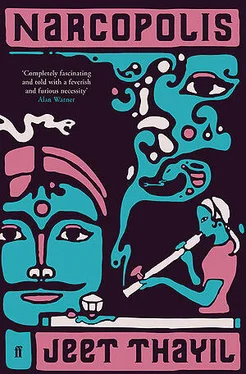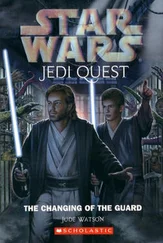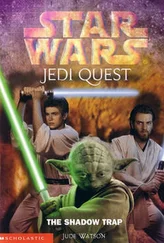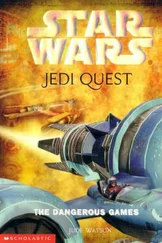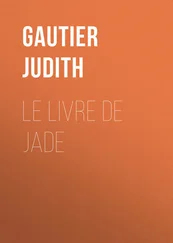In the morning a cadre came to his quarters with a summons to the commissariat. He thought: How did they find out? What did I do? What did I do? He dressed quickly and followed the man to a room where Commissar Hu stood in front of a blackboard with a dozen or so others. There was a table with sweet cakes and tea and cigarette packs arranged in the shape of a pyramid. There were men who were so important that no one knew their names. They smoked and interrupted Commissar Hu’s speech with rude jokes: Commissar, we heard you last night. The earth shook so much we thought the building would surely fall. Later, Wei Kuo-ching also made a speech and Lee tried to pay attention but he heard only some of the words: blockade and industrial production and railway shipments and sabotage and military supplies . He heard the words but he was unable to fit them together into a coherent pattern. He thought about Pang Mei, how she’d slept through the earthquake, how delicate her feet were, and how lucky he was. At noon Lee was told he would be going to the province capital of Wuhan, where he was to meet the regional military commander, the warlord General Lo Tsai-ta, and negotiate an end to the factional fighting that had paralysed the city. Commissar Hu told him he had an hour to pack. As he left the commissariat he looked for Pang Mei but she was nowhere to be seen.
The trip to Wuhan took a little less than four hours. He was travelling with a group of Red Guards who changed seats throughout the flight. They pointed out of the window and laughed. What were they laughing at? Nothing could be seen except a grey wall of clouds and rain or condensation. He heard a high whine from the small plane’s twin engines and he felt the vibration from the metal under his feet. When people walked up and down the aisle the plane wobbled. At times it shook so violently that he thought it would surely fall from the sky and he found he was gripping the armrests. There was an announcement. Passengers carrying guns, ammunition and radioactive material were asked to hand them over to the attendants who would return said items when the flight landed. At this, some of the Red Guards handed over an assortment of weapons, including rifles, pistols and army-issue knives. Traditional music followed. Lee listened until the music faded into a hiss. He slept for a little while and was woken by another announcement: the plane was approaching Wuhan, which was a great industrial city of central China. Passengers were forbidden to take pictures from the aircraft windows or on the ground. There was a pause. Then the voice said that those who wished to alight could do so. The plane circled several times before landing. The attendants returned the Red Guards’ weapons. More music was heard on the intercom, not Chinese selections but a song from the Western movie Mary Poppins .
When Lee stepped off the aircraft he saw that the runway was in disarray: planes and trucks were parked pell-mell and groups of young men and women walked around issuing orders that only added to the chaos. They strolled across the tarmac as if it was a village lane or they squatted and smoked and wrote slogans on the dirt. The sun was out and as Lee walked toward the airport building he heard his name called by the young Guards who were on the flight with him. They were gathered around a jeep that had driven right up to the plane. They waved to him and Lee walked back. The Guards had convinced the driver of the jeep to take them to the city, they said, and Lee was welcome to ride with them. They all crowded into the vehicle. As it left the airport and took the road into the city, the Guards decided they wanted to eat at a restaurant. Hey, hey, hey, driver, said one, if you see a pig run it over, we’re hungry. The driver smiled and said nothing. The Guards seemed to Lee like teenagers, they were obnoxious and without shame. They were never silent. At the restaurant they ordered char siu fan and beer and when it was time to pay they told the proprietor they had no money. Lee had cash but the younger men wouldn’t let him take out his purse. No, no, you are our guest. Do you want us to lose face? They turned to the proprietor. We invite you to Peking, they told him. Come to Peking so we may exchange revolutionary ideas. You will be our guest. The man knew better than to argue.
*
From his hotel that night, Lee made a phone call but the operator said she was not in her room. He tried the number at hourly intervals and gave up around dawn. The next morning he was late for his meeting with the man Commissar Hu had described as a warlord. General Lo Tsai-ta got up when Lee was shown in. But instead of making him feel welcome, the general picked up his cigarettes, excused himself and left the room. Some time later an assistant appeared to tell Lee that the general would not be available until later in the day, there was a crisis at the railway terminus that required his presence. Lee left the compound and walked to the end of the street and turned right as if he knew where he was going. There were no buses or taxis but the street was full of people. Uncleared garbage and old newspapers lay on the corner. He kept walking and came to a bridge, the famous bridge known throughout the country as a marvel of modern engineering. At its base, a man was cooking rice for his family. There were people swimming in the river and clothes spread out to dry on the parapets. Lee walked past a lecture group of some sort, a class of five or six who sat in a circle and listened to a woman reciting something. Was it poetry or the words of a song? He caught a few lines:
The world is on fire; time is a bomb.
Ten thousand years are not enough
When so much remains to be done.
Now he could see the entire span of the bridge. He noticed that there were small knots of people sitting throughout the length of it and some kind of obstruction at the other end. He stopped when he saw what it was, stopped, turned around and went back the way he’d come. A bus had been parked crossways and on the far side of the bus was a snaking line of cars and trucks and military transport vehicles, a line that stretched further than he could see. The drivers had disappeared and the vehicles looked like they hadn’t moved in a long time. Below him the muddy Yangtse too was immobile, as if it had turned to cement.
*
It was night when he returned to the general’s office. Lo Tsai-ta was on the couch, a Panama hat worn low over his closed eyes and a cigarette burning in his hand. He wore a white shirt and linen trousers to go with the hat, but the overall effect of the ensemble wasn’t elegance as much as exhaustion. He seemed too tired to speak. There were two other men in the room who greeted Lee as if they knew him well. One, an officer who gave his name only as Tung, took him to a table where a bottle and glasses had been arranged. Lee poured himself a brandy and soda. He took a quick swallow of the drink and carried his glass and stood at the window. Sit here, said Tung, and Lee took a seat on the couch opposite the general. He noticed that General Lo’s eyes had followed his progress from the window to the couch but otherwise the general was inert, like a convalescent. Lee placed his drink on the floor and waited with his elbows on his knees. After a time the general lifted his arm and took a slow sip of his cigarette. Tung and his colleague were having a whispered conversation. Lee couldn’t hear Tung but the other man’s one-word responses were clear enough. Kaolu, he said, whenever Tung stopped for breath.
Eventually, Tung turned to Lee. Wuhan is a test case, he said. Everything happens here: the plague, riots, surplus productivity, famine, tremendous industrial output, the end of everything. We believe Peking is using us as a kind of social experiment. They want to see how much punishment a city can take before it shuts down. They’ve posed an interesting question or set of questions, I will say that much. For example, how much chaos can the human system absorb? What are the uses of insanity? Is there intelligence in negativity? How far can destruction extend before it stops being creative? How useful is chance? Can the individual imagination apprehend the last beach, the last birdsong, the last sunset in the last sky? The inhabitants of Wuhan have thought about all these questions, we’ve thought about and discussed them in great detail. We’ve answered them too, if only to our own satisfaction. There’s only one question we are incapable of answering. Do you know what it is?
Читать дальше
